PsychNewsDaily Publishers
100 Summit Drive
Burlington, MA, 01803
Telephone: (320) 349-2484
PsychNewsDaily Publishers
100 Summit Drive
Burlington, MA, 01803
Telephone: (320) 349-2484
Rhode Island offers accessible mental health support through 24/7 crisis lines, community clinics, and specialized programs for vulnerable populations, ensuring no one faces challenges alone.
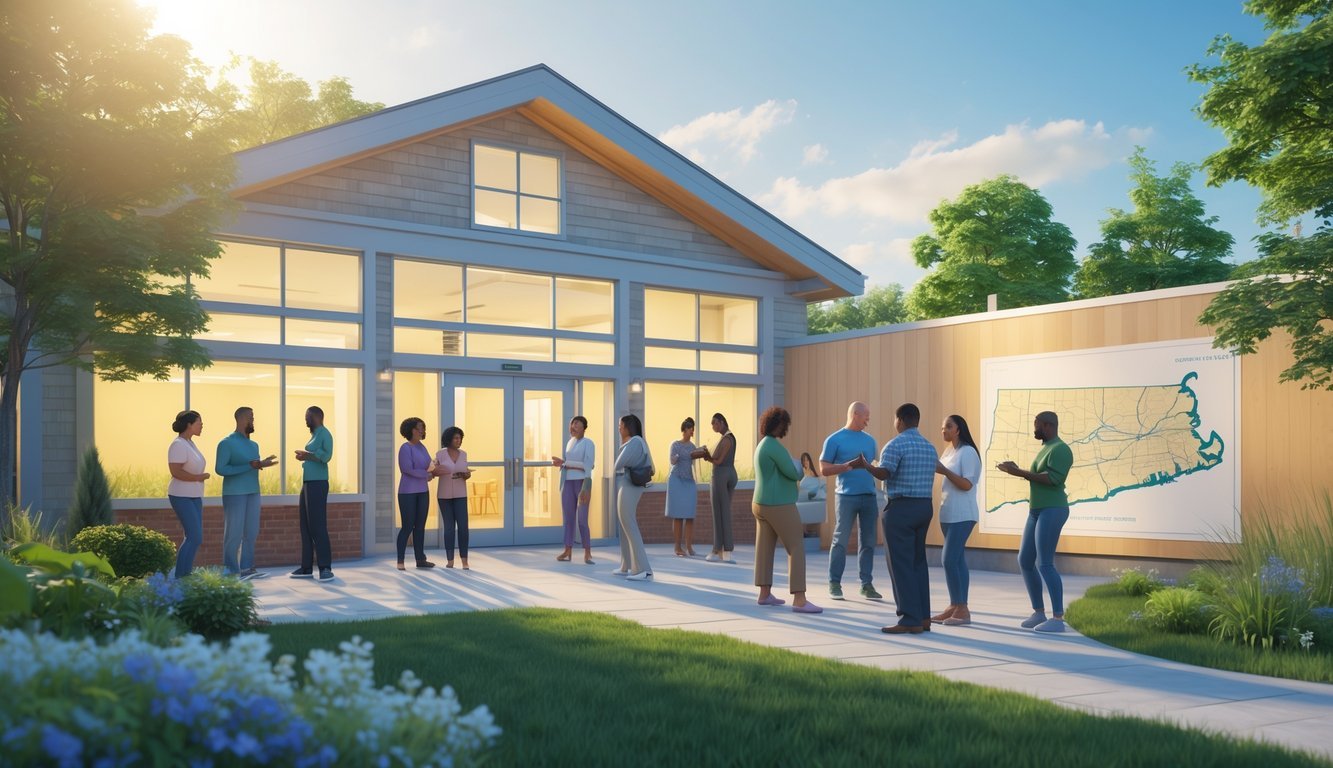
No one should have to pay for mental health help when they truly need it. Rhode Island has a wide range of free mental health services through state programs, community centers, and nonprofits, all ready to support you.
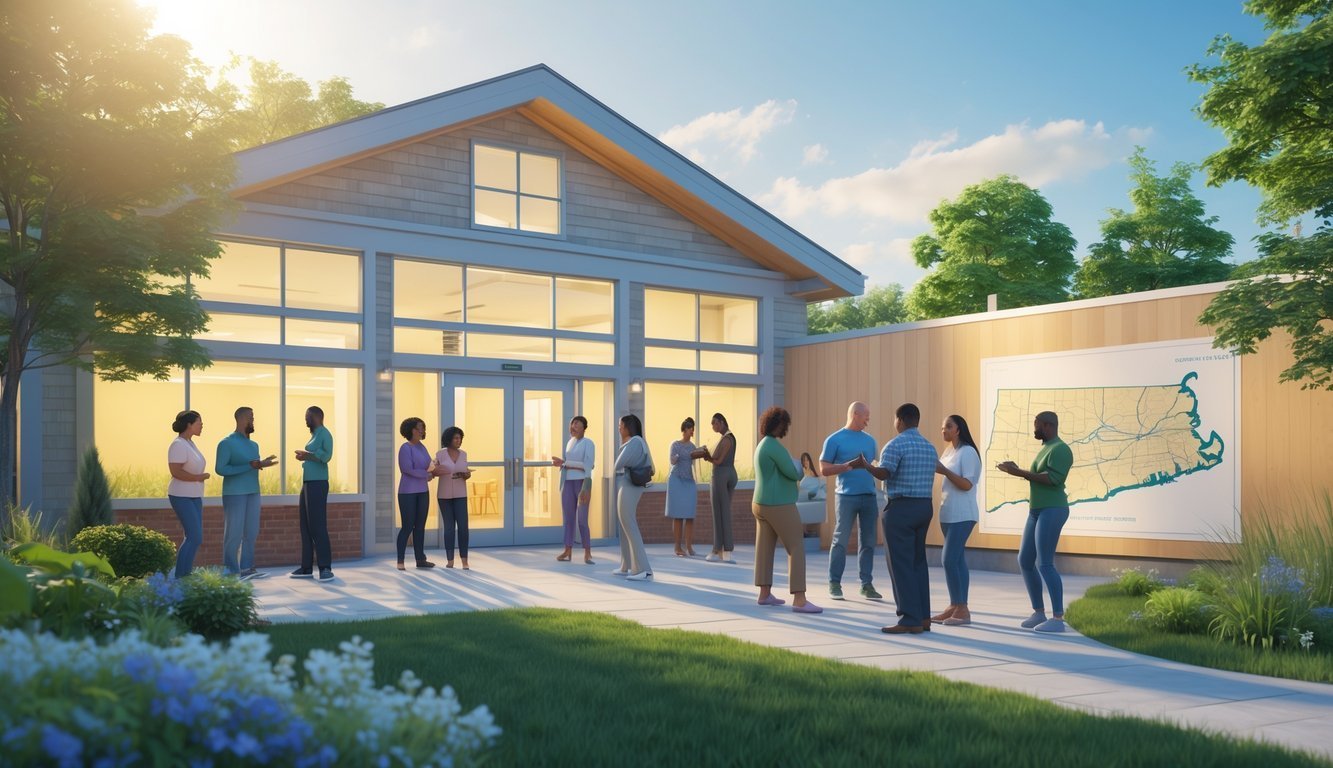
You can reach out for free crisis support any time, day or night, by calling the 988 Lifeline. Emergency mental health centers welcome walk-ins, and community health organizations provide ongoing counseling across Rhode Island. These services cover everything from urgent crisis help to regular therapy and support groups.
If you’re struggling with depression, anxiety, substance use, or other mental health challenges, Rhode Island’s network of resources is here for you. There are options for LGBTQ+ youth, veterans, and behavioral health services in many communities, so you can find what fits your needs.
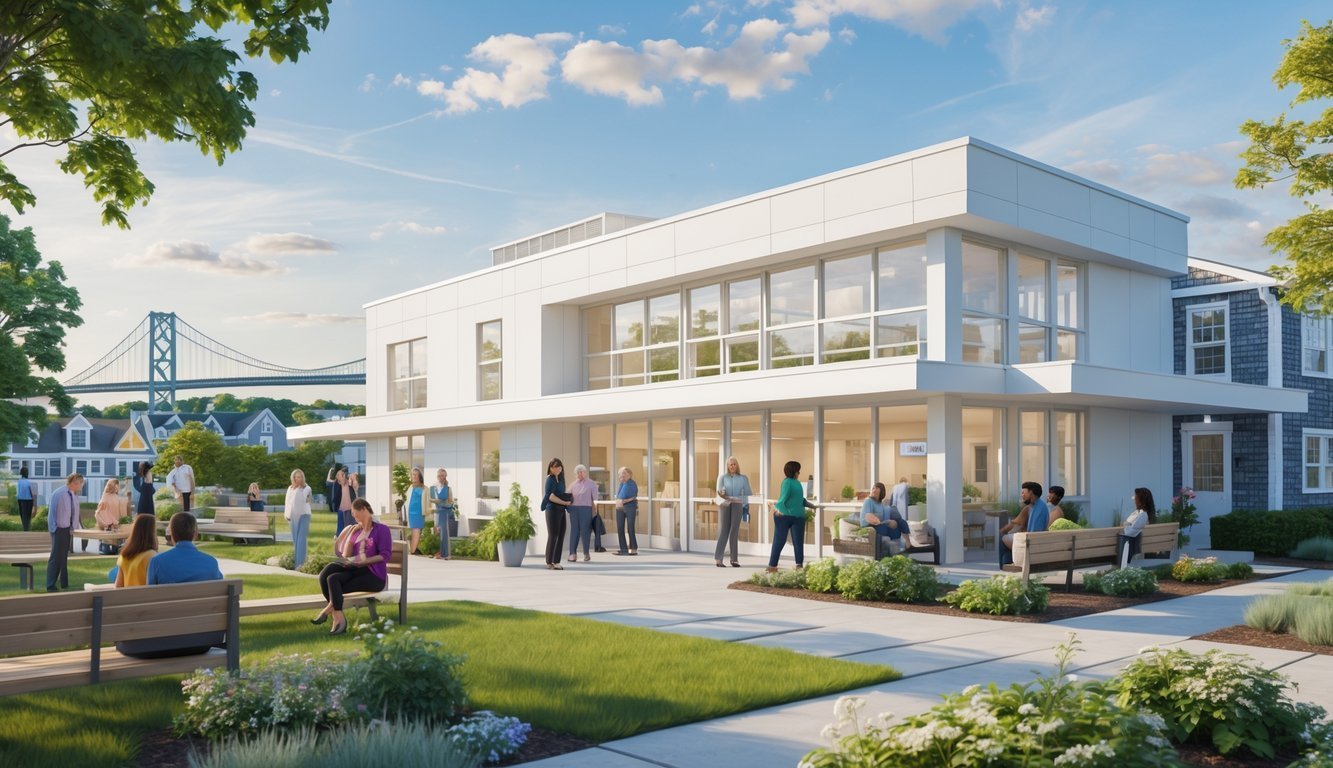
State-certified community behavioral health clinics and crisis support systems offer free mental health services in Rhode Island. You’ll find 24/7 crisis intervention, counseling, substance use treatment, and programs tailored for different groups.
Rhode Island’s free mental health services include crisis intervention, counseling, and treatment programs that don’t require upfront payment. The 988 Suicide & Crisis Lifeline connects you to trained crisis counselors at no cost, 24/7.
BH Link runs a 24/7 community-based center at 975 Waterman Ave in East Providence. You can get immediate behavioral healthcare for mental health or substance use crises there.
State Certified Community Behavioral Health Clinics serve every area in Rhode Island. They offer outpatient mental health treatment for free, depending on your eligibility.
The Treatment Referral Routing Service at 1-800-662-HELP gives free and confidential treatment referrals. You can call any time, and they offer help in English and Spanish.
Your income, insurance status, and situation determine if you qualify for free services. Crisis services through 988 are open to everyone, no matter what.
LGBTQ+ youth can get specialized crisis care from The Trevor Project. They focus on support for LGBTQ+ young people, 24/7.
Veterans get support from the Veterans Crisis Line, which connects them and their families with trained VA responders by phone, chat, or text.
Most community mental health centers use income-based eligibility. They often have sliding fee scales that lower costs to zero for those who qualify.
Your insurance status might affect access, but you don’t need insurance for crisis care. The 988 Lifeline helps everyone, insured or not.
Community behavioral health clinics accept Medicaid and often see uninsured people. HealthSource RI can help you find affordable health coverage.
Community centers use sliding fee scales to set costs based on income and family size. If you’re under certain income levels, you might pay nothing.
Places like BH Link don’t ask about insurance before providing emergency mental health care. They focus on helping you first, not payment.
Behavioral health services combine mental health and substance use treatment programs. Rhode Island’s clinics offer care for people dealing with both mental health and addiction.
Mental health services include one-on-one counseling, group therapy, psychiatric evaluations, and medication management. These services help with depression, anxiety, trauma, and more.
Substance use treatment often blends behavioral therapy with medical support. Many places treat mental health and substance use together.
Specialized programs are available for children, adults, and families. Services range from crisis stabilization to ongoing therapy and support groups.
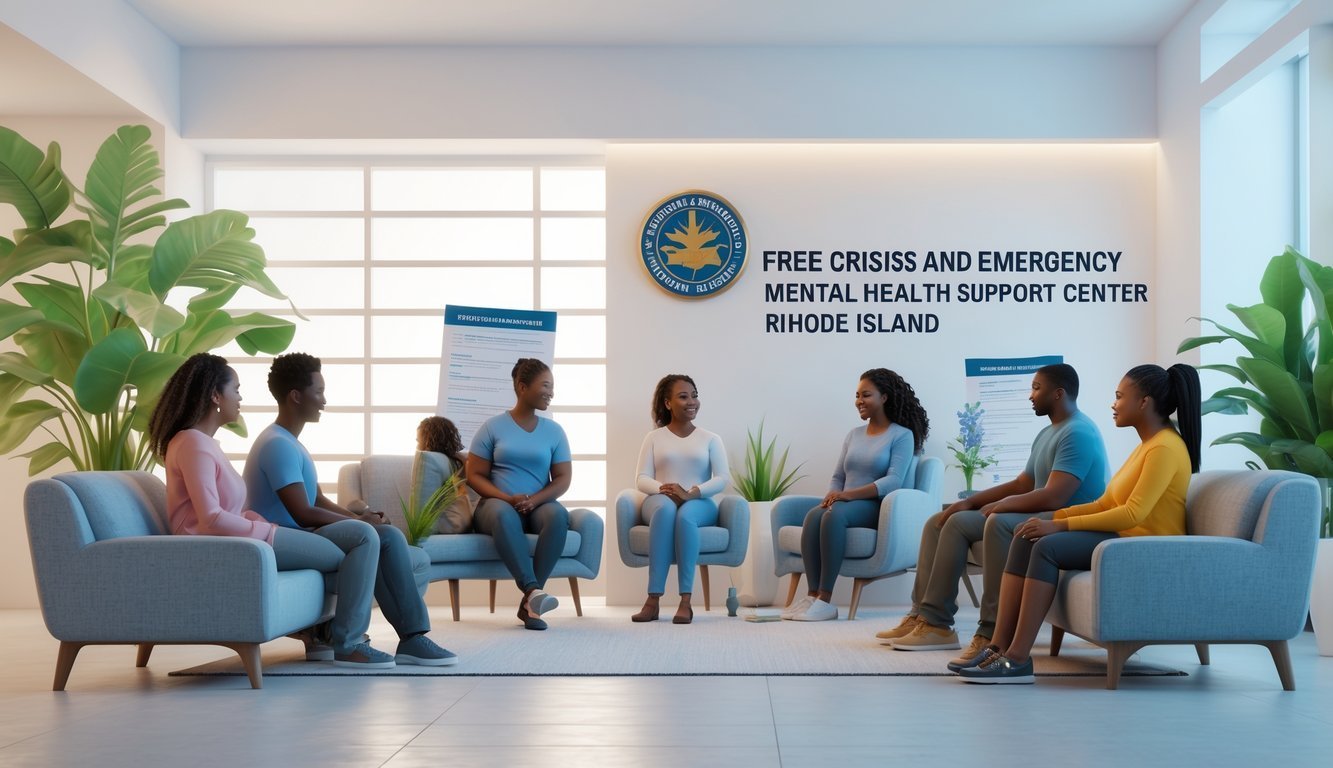
Rhode Island has several ways to get crisis help, including 24/7 hotlines, response teams, and suicide prevention programs. These services are free when you need help fast.
The 988 Suicide & Crisis Lifeline is available 24/7 by call, text, or chat. If you’re having suicidal thoughts, substance use problems, or emotional distress, you can reach out anytime.
Key hotline options:
These hotlines are always free. Trained counselors will talk you through a crisis and help you find local resources.
BH Link acts as Rhode Island’s main crisis intervention system. You can get immediate mental health support if you can’t wait for a regular appointment.
BH Link offers:
They’re open 24/7, every day. Crisis teams can come to your home or meet you somewhere comfortable.
You can reach BH Link through hospital ERs or by calling their crisis line.
Rhode Island has programs focused on suicide prevention and support. These services use trained staff and specific intervention strategies.
Suicide prevention services include:
NAMI Rhode Island offers free mental health support and education for suicide prevention. They run support groups and share educational materials.
Many programs train people to spot suicide warning signs. These trainings help friends and families know how to respond in a crisis.
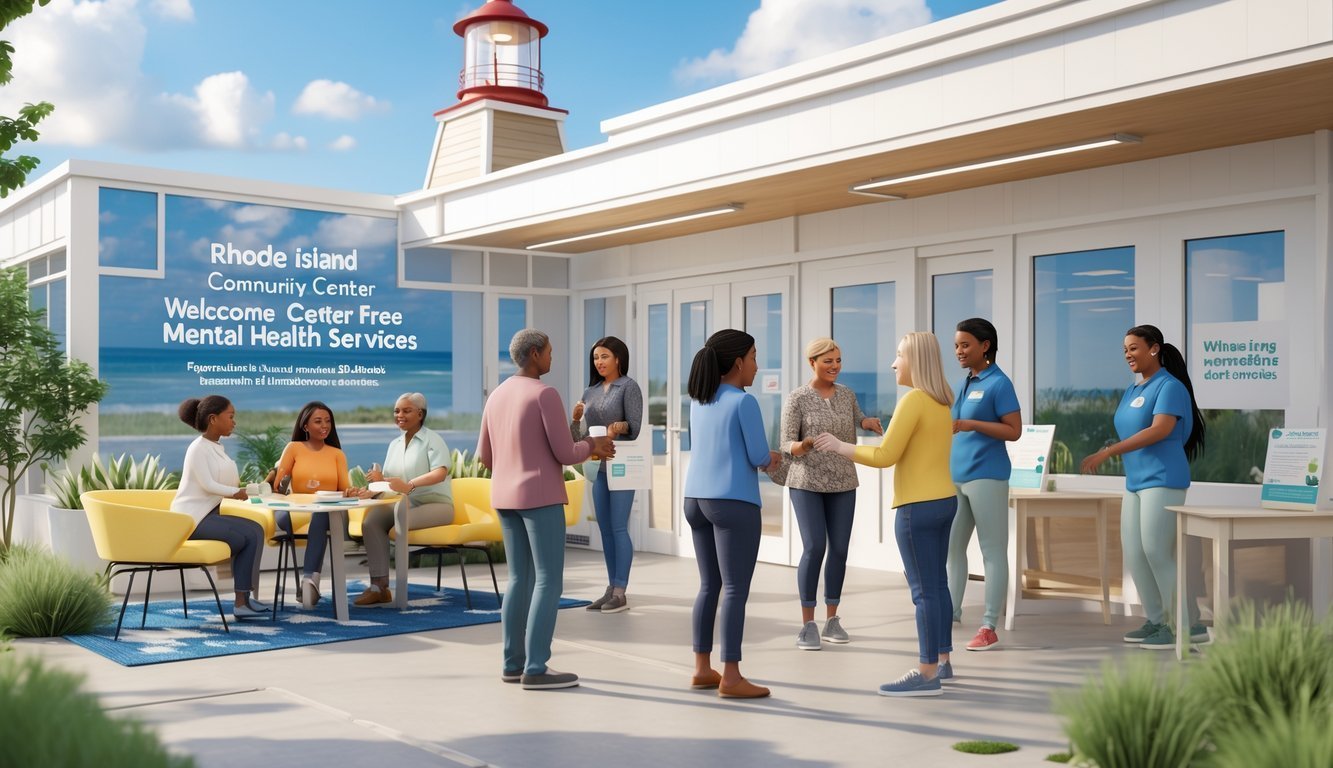
Community health centers, nonprofits like NAMI, and specialized facilities for young people all play a big role in Rhode Island’s mental health services. Many offer sliding scale fees or free programs.
Community mental health centers are the backbone of Rhode Island’s public mental health system. They offer a range of services, often using a sliding fee scale based on your income.
Thundermist Health Center has locations throughout Rhode Island. They provide counseling, psychiatric care, and substance abuse treatment. Their services include individual therapy, group counseling, and medication management.
Licensed behavioral health organizations across the state offer different treatment options. Most accept Medicaid and have reduced rates for people without insurance.
Community health centers typically offer:
Most centers ask for appointments, but some have walk-in crisis hours. You can call centers directly to ask about programs and eligibility.
NAMI Rhode Island gives free mental health education and support statewide. They run support groups for people with mental health conditions and for families.
NAMI’s main programs include family-to-family education and peer support groups. These help you connect with others who get what you’re going through. They also offer mental health first aid training.
Anchor Recovery Community Center focuses on addiction recovery. They provide peer recovery coaching and community programs. Their services help people stay in recovery by building connections.
The Samaritans of Rhode Island is a suicide prevention resource. They offer crisis support, grief counseling, and family education.
Peer support organizations link you with people who’ve faced mental health challenges themselves. These connections can give you advice and support that feels more personal than professional treatment alone.
Bradley Hospital specializes in mental health care for children and teens. They offer inpatient, outpatient, and day programs for young people with serious mental health needs.
RIPIN (Rhode Island Parent Information Network) supports families of kids with disabilities or mental health needs. They provide advocacy, education, and family support.
Children’s mental health services often include:
Many pediatric programs work closely with schools and families to create plans that fit your child’s needs at home and in class.
You can get emergency mental health care for children at hospital ERs. Some hospitals have pediatric mental health units with child psychiatrists and social workers.
Rhode Island has mental health services for different communities. There’s postpartum support for new moms, and culturally responsive care for immigrants and BIPOC communities.
New moms in Rhode Island can get free mental health help from several programs. These services address postpartum depression, anxiety, and the stress of adjusting to new parenthood.
The Rhode Island Department of Health offers free screening and counseling for postpartum mental health. You can get support through home visits or phone consultations.
Postpartum Support International connects Rhode Island mothers with local groups and trained volunteers. Their helpline is available in multiple languages.
Hospitals like Women & Infants Hospital run free support groups for moms facing postpartum depression. These groups meet weekly and offer peer support from other mothers.
You can also find free lactation support paired with mental health screening. Many programs recognize how feeding issues can affect a mom’s mental health.
United Way 2-1-1 connects you with maternal mental health resources nearby. Just dial 2-1-1 to talk with someone who knows what’s available locally.
Rhode Island knows that one in eight Rhode Islanders came here from another country. A lot of folks arrive from places like the Dominican Republic, Guatemala, Portugal, and a few others.
Cultural barriers often get in the way when people try to find mental health care. Some organizations step up and offer free, culturally aware services in different languages.
The International Institute of Rhode Island gives free mental health support to refugees and immigrants. Their counselors actually speak several languages and get where people are coming from, culturally.
Community health centers across Rhode Island also offer free mental health care for BIPOC communities. These centers really focus on breaking down systemic barriers and fighting cultural stigma.
LGBTQ+ folks can find specialized help at places like PFLAG Rhode Island and the Rhode Island Pride Center. These groups run free counseling and support groups that feel more welcoming.
A lot of programs use sliding fee scales based on your income, so services end up being totally free if you qualify. You don’t need insurance or any specific documentation to get help.